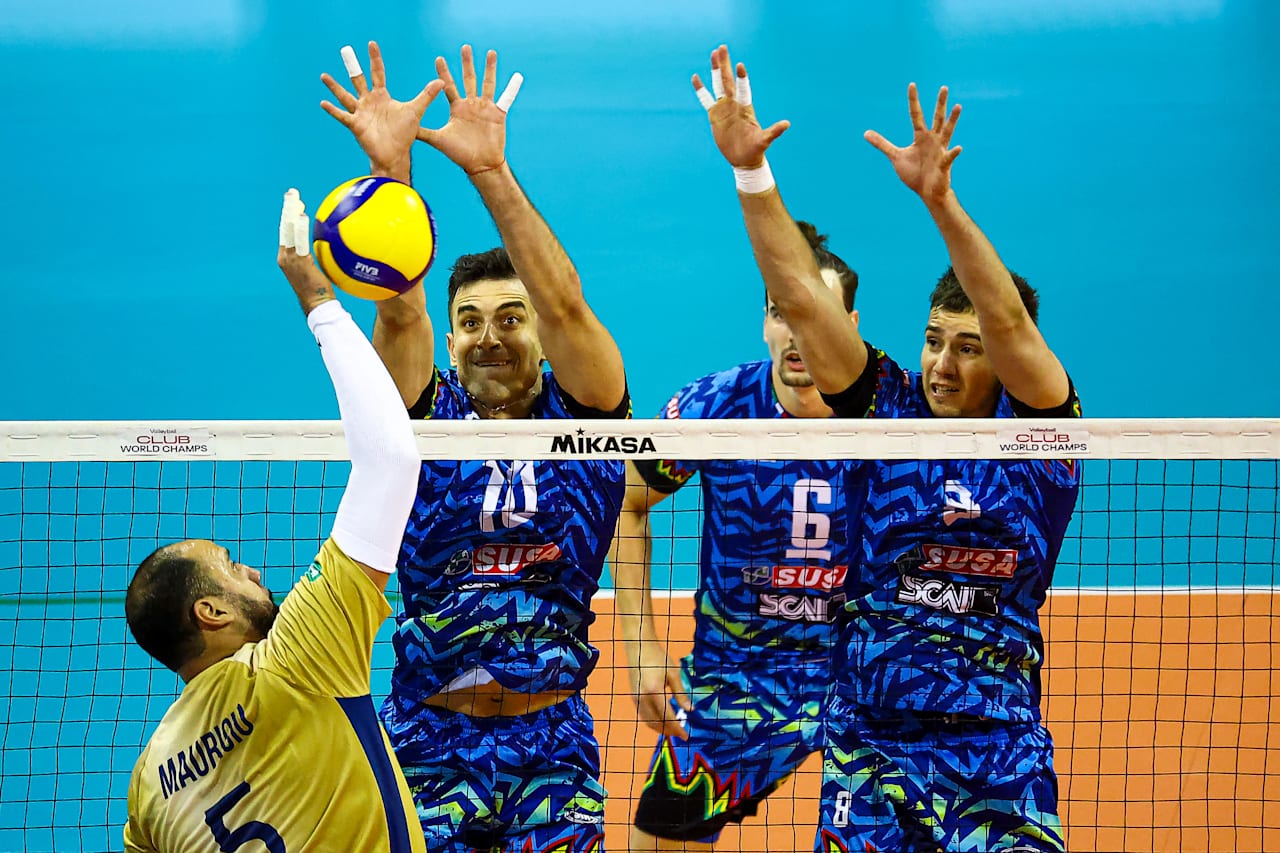On October 26th Georgia will face a critical election that could be the most crucial since its independency in 1991. The implications are profound: Georgia could either fall under the influence of a Russian-controlled government led by the Georgian oligarch Bidzina Ivanishvili, becoming a close ally or, in the worst-case, a satellite state of the Russian Federation – a way the current government appears to be pursuing.
On the another hand, a diverse, pro-western coalition could emerge, reaffirming Georgia’s ambitions for NATO and EU membership, with a realistic chance of achieving EU membership within the next decade. This alternate promises economical growth, social stability, democratic reforms and enhanced national security.
Supporting the Georgian people in their pursuit of political will is not just about preserving democracy within this tiny nation, but besides about recognizing the broader implications of this electoral choice, which will be explored in detail.
Why the West must act now
Georgia stands at a crucial crossroads and the West must act decisively to support its pro-democracy majority. Failure to act risks transforming Georgia into a Russian satellite, with crucial strategical consequences for western regional interests. Here is what the West stands to lose if Georgia falls under Russian influence:
Loss of a strategical geopolitical ally
Georgia’s strategical position at the crossroads of Europe and Asia makes it an invaluable ally. It serves as a vital transit hub for energy pipelines, specified as the Baku-Tbilisi-Ceyhan pipeline, which enables Caspian oil to scope western markets without traversing Russian territory. Should Russia consolidate control over Georgia, it would gain crucial leverage over energy supply routes, undermining Europe’s energy diversification efforts and expanding dependence on Russian energy.
Additionally, Georgia’s access to the Black Sea is crucial for both trade and military strategy. Russian dominance in Georgia would enhance its control over the Black Sea, restricting NATO’s ability to task power and safeguard its interests in the region. This would besides affect NATO’s capacity to support another Black Sea states, specified as Ukraine and Romania, thereby diminishing overall regional security.
Weakening of NATO’s Influence and Regional Security
Georgia has been a dedicated NATO partner, contributing to various missions and consistently seeking membership. A shift towards Russian alignment would jeopardize the safety of NATO’s east flank, undermining the alliance’s strategical objectives in east Europe and the South Caucasus. Allowing Russia to gain control over Georgia would embolden Moscow’s aggressive abroad policy and expansionist tactics, setting a dangerous precedent that could encourage further Russian encroachments into another post-Soviet states. This would destabilize the full region and challenge NATO’s credibility and deterrence capabilities.
Undermining democratic movements and western values
Georgia has stood out as a beacon of democracy in the region, striving for closer ties with the West and implementing democratic reforms. A shift towards Russian alignment would represent a crucial setback for democratic progress, not only in Georgia but throughout the region. Permitting Georgia to fall under Russian influence would signal a retreat from supporting democratic values and institutions, possibly encouraging the spread of authoritarianism. This would erode civilian liberties and human rights within Georgia and deliver a propaganda triumph to authoritarian regimes globally, undermining the broader conflict for democracy.
Economic and Energy safety Threats
Under Russian control, Georgia would grant Moscow greater leverage over key energy routes to Europe, threatening the European Union’s energy security. This would reduce the availability of alternatives to Russian energy, expanding vulnerability to energy blackmail and supply disruptions. Furthermore, Georgia plays a pivotal function as a transit corridor between Europe and Asia. Russian dominance over Georgia would disrupt these trade routes, impacting economical interests and expanding transportation costs for goods between these regions.
Threat to the mediate corridor
The mediate Corridor, or Trans-Caspian global Transport Route, is simply a crucial trade way linking Asia to Europe via Central Asia, the Caspian Sea, and the South Caucasus, including Georgia. It provides an alternate to the Northern Corridor, which traverses Russian territory. The corridor has gained strategical importance amid global supply chain disruptions and the request for reliable routes independent of Russian control. If Russia gains control over Georgia, the viability of the mediate Corridor would be severely compromised, leading to respective negative consequences.
The mediate Corridor supports the movement of goods between Asia and Europe, facilitating regional trade and economical integration. Russian dominance over Georgia would give Moscow leverage over this critical route, possibly disrupting trade flows and expanding costs for European and Asian businesses.
With the mediate Corridor endangered, countries and businesses seeking alternatives to Russian routes would face less options, possibly expanding reliance on Russian-controlled pathways and undermining efforts to diversify supply chains. The EU has promoted the mediate Corridor as part of its broader connectivity strategy to enhance trade and transport links with Central Asia. Russian control over Georgia would weaken these initiatives, reducing Europe’s strategical autonomy and connectivity with Asia.
The mediate Corridor is not just a trade way but a vital component of the regional economical landscape. Russian interference could destabilize these regions, impacting economical growth and political stability. By threatening the mediate Corridor, Russia’s control over Georgia would pose a broader threat to global trade and regional cooperation, underscoring the urgent request for the West to support Georgia’s sovereignty and democratic aspirations.
Loss of a partner in counterterrorism and regional stability
Georgia has been a reliable partner in counterterrorism and regional security, contributing to peacekeeping operations and supporting the West’s fight against global terrorism. Alignment with Russia would disrupt these partnerships, diminishing western influence and the ability to address safety threats in the region. Additionally, losing Georgia as a pro-western ally could destabilize the South Caucasus, expanding tensions among regional powers like Turkey and Iran. This instability might lead to broader conflicts, complicating western efforts to keep peace and safety in this strategically crucial region.
Undermining the credibility of western commitments
The West’s failure to support Georgia would have profound implications for its credibility. It would propose an unwillingness or inability to stand by its allies and support pro-democracy movements, possibly leading another pro-western nations to reassess their alliances. This erosion of trust could push another countries toward Russia out of necessity, altering the balance of power and diminishing Western influence in east Europe and beyond.
Investment and aid overview
We must not squander the crucial investments and efforts the West has devoted to Georgia since its independence. Below is simply a partial list of investments made by the EU and the US in Georgia:
US Investments:
-
USAID Assistance: Since 1991, USAID has been a primary channel of US assistance to Georgia, focusing on democracy, economical improvement and social sectors. Over $1.8 billion in assistance has been provided from 1991 to 2021, supporting governance reforms, economical growth, and civilian society development.
-
Millennium Challenge corp (MCC): First Compact (2005-2011): about $395 million for infrastructure projects, including roads, energy, and regional development. Second Compact (2013-2019): About $140 million for education, including STEM programs and vocational education.
-
US safety Assistance: crucial military and safety assistance, amounting to about $200 million since 1991, to support Georgia’s defence capabilities and NATO integration.
Thus, the full US Investments in Georgia scope about $2.5 billion from 1991 to the present.
EU Investments:
-
EU Financial Assistance: The EU has been a major contributor to Georgia’s improvement through various instruments, including the European Neighbourhood Instrument (ENI) and east Partnership programs. From 1992 to 2020, over 3.9 billion euros (approximately $4.2 billion) in grants and loans have been provided for governance reforms, economical development, infrastructure, and social programs.
-
Support for Democratic Reforms: Investments have targeted the regulation of law, judiciary reforms, election processes, human rights, and civilian society.
-
Infrastructure and Connectivity Projects: Key infrastructure projects, including transport and energy, to integrate Georgia more closely with European markets, contributing respective 100 million euros to these sectors.
Thus, the full EU investments reaches about $4.2 billion from 1991 to the present.
This makes a combined full of EU and US assistance between about $6.7 billion and $7 billion from 1991 to the present, focusing on democratic institution-building, economical development, safety and infrastructure.
This crucial investment underscores the strategical importance of Georgia to the West and highlights the request to safeguard these efforts from being undermined by Russian influence. Continued support is vital for maintaining Georgia’s trajectory toward democracy and integration with Western institutions.
Before its besides late
Given the importance of the investments made in Georgia since 1991, including its advancement in nation-building, security, diplomacy and economical development, these achievements must be preserved and built upon. According to resent Edison investigation polls, 63 per cent of Georgians believe the country is heading in the incorrect direction, while 86 per cent support European integration.
Assisting Georgia is crucial given the hazard that the current pro-Russian government might manipulate election results, employment brutal tactics akin to those utilized during the protests against the “Russian law” and declare a constitutional majority based on their own poll predictions. specified actions would spell disaster for both the country and the region, possibly leading to the emergence of another authoritarian government in east Europe.
The West must respond proactively and urgently, starting with an unprecedented number of election monitors to guarantee transparency and fairness in the upcoming elections. This will aid prevent manipulation and uphold democratic standards. If election results are found to be falsified, the West should immediately impose strict sanctions on Georgian government officials, including oligarch Bidzina Ivanishvili and his affiliates. The EU and the US must leverage all available political and diplomatic tools to force the Georgian government to return to a democratic path. Direct support to pro-democracy groups and civilian society organizations in Georgia should be enhanced to strengthen their capacity to advocate for democratic reforms and counteract authoritarian influences. The West should reaffirm its commitment to Georgia’s aspirations for NATO and EU membership, providing clear and tangible support to reenforce its integration efforts.
Acting now is crucial to safeguarding the investments made in Georgia since its independency and to preserving the democratic advancement achieved. Delaying action could consequence in crucial long-term strategical losses and undermine the West’s credibility in supporting democratic movements worldwide. Failure to act now could consequence in long-term strategical losses that would be challenging, if not impossible, to reverse.
Nika Sikharulidze is an expert in the fields of national security, global relations and defence matters. His prior professional roles have been characterised by the provision of strategical counsel and the presumption of leadership positions within the Office of the National safety Council of Georgia and the Parliament of Georgia.









